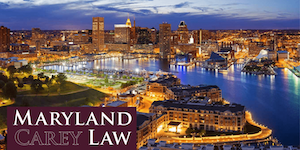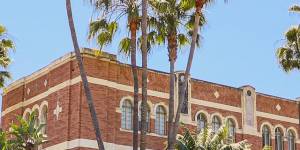Hi, you would have to do an ABA approved LLM in the US. Roman Law is not Common Law for the purposes of qualifying. An LLB from Canada, UK, Australia and New Zealand would enable you to do the NY bar because they are common law jurisdictions. Hope that helps.
Bar Exam
Posted Apr 17, 2005 21:08
Posted Apr 23, 2005 23:30
I have been reading the posts and am very interested in taking the NY State Bar. I am currently enrolled in a 2-yr 'Graduate' LLB - basically equivalent to a 3yr Ordinary LLB offered by the University of Edinburgh but I am worried this LLB isn't from a common law system. I'm not sure if it's the excessive pride displayed by the Scottish, but they always seem to point out that Scotland is a mixed legal system consisting of both common law and civil law elements. I haven't been able to find a concrete answer on which way it leans more - though I would think it's English common-law. Does anyone have an opinion on this? Will I be able to complete a 1-yr LLM in the states and be qualified for the NY Bar with my LLB degree from a UK institution, although it's from a university teaching 'Scots Law"?
Posted Apr 25, 2005 15:03
Edinburgh is in the UK, a British university, therefore common law system. I reckon you would be able to take an LLM in the US. But I suggest you send all your NY bar exam materials in advance for evaluation by the board. They will get back to you, so do not worry.
Posted Apr 25, 2005 17:01
Right, what about graduate LLB-s from english universities. These programms are 2 years in a lenght, are there sufficient or not to take a bar examination? what about 2 y LLB+ 1 LLM?
Posted May 10, 2005 13:35
Hey, I am going to be attending law school in september this year in the u.k. I also want to go straight to California and sit the Bar exam. I do not understand what is required and every1 seems to be doing the NY one. Do I need an LLM? Do I need my BVC? or would it be advantageous to have either of the two, or would it not make a difference?
Posted May 17, 2005 19:53
To throw another spanner in the works, what happens if you do the LPC and complete a training contract in London and then want to head to the US?
Posted May 19, 2005 07:08
LOS ANGELES--(BUSINESS WIRE)--May 2, 2005--More than 300,000 lawyers and law students were each charged an estimated $1,000 extra for bar review courses, according to a complaint filed against BAR/BRI bar review and The West Publishing Corporation and Kaplan, Inc. in the U.S. District Court for the Central District of California Case No. CV 053222R (NCx) in Los Angeles today.
West Publishing Corp., dba BAR/BRI, and Kaplan are joined as defendants in a class action lawsuit accusing the two companies of illegally dividing the highly lucrative LSAT and bar exam test preparation businesses. According to the complaint, executives of BAR/BRI and Kaplan secretly agreed to a per se illegal market division.
BAR/BRI agreed to close its Law School Aptitude Test (LSAT) preparation course from the market in which Kaplan was the dominant competitor. Kaplan, in turn, agreed not to enter the full-service bar review business, in which BAR/BRI was the dominant competitor. The two companies then entered into an agreement to work together "strategically" to enhance Kaplan's share of the LSAT market and to increase BAR/BRI's control of the bar review market.
The complaint further alleges that at the time this agreement was entered into, Kaplan had entered into a letter of intent to acquire bar review materials and begin bar review courses across the country in competition with BAR/BRI. After Kaplan worked out its market division arrangement with BAR/BRI, it unilaterally terminated that agreement and abandoned all plans to compete against BAR/BRI. As a result, competition has been dramatically reduced, and law students and lawyers have overpaid substantially for their bar review courses ever since.
The "name plaintiffs" Ryan Rodriguez and Reena B. Frailich are suing on behalf of about 300,000 law students and attorneys to recover damages of some $300 million, plus costs. Under federal antitrust law, any recovered damages are automatically trebled.
Kaplan claims that it is the nation's largest test preparation company. It prepares students for virtually every standardized exam. However, it does not prepare candidates for the bar exam. BAR/BRI claims that it prepares more than 95 percent of all students sitting for the bar exam in any year.
Representing the plaintiffs is the law firm of Van Etten Suzumoto & Becket LLP, of Santa Monica, Calif. The lead attorney is antitrust trial lawyer Eliot G. Disner.
West Publishing Corp., dba BAR/BRI, and Kaplan are joined as defendants in a class action lawsuit accusing the two companies of illegally dividing the highly lucrative LSAT and bar exam test preparation businesses. According to the complaint, executives of BAR/BRI and Kaplan secretly agreed to a per se illegal market division.
BAR/BRI agreed to close its Law School Aptitude Test (LSAT) preparation course from the market in which Kaplan was the dominant competitor. Kaplan, in turn, agreed not to enter the full-service bar review business, in which BAR/BRI was the dominant competitor. The two companies then entered into an agreement to work together "strategically" to enhance Kaplan's share of the LSAT market and to increase BAR/BRI's control of the bar review market.
The complaint further alleges that at the time this agreement was entered into, Kaplan had entered into a letter of intent to acquire bar review materials and begin bar review courses across the country in competition with BAR/BRI. After Kaplan worked out its market division arrangement with BAR/BRI, it unilaterally terminated that agreement and abandoned all plans to compete against BAR/BRI. As a result, competition has been dramatically reduced, and law students and lawyers have overpaid substantially for their bar review courses ever since.
The "name plaintiffs" Ryan Rodriguez and Reena B. Frailich are suing on behalf of about 300,000 law students and attorneys to recover damages of some $300 million, plus costs. Under federal antitrust law, any recovered damages are automatically trebled.
Kaplan claims that it is the nation's largest test preparation company. It prepares students for virtually every standardized exam. However, it does not prepare candidates for the bar exam. BAR/BRI claims that it prepares more than 95 percent of all students sitting for the bar exam in any year.
Representing the plaintiffs is the law firm of Van Etten Suzumoto & Becket LLP, of Santa Monica, Calif. The lead attorney is antitrust trial lawyer Eliot G. Disner.
Posted Jun 08, 2005 03:28
Does anyone know if a Hong Kong 3-year LLB will allow me to sit in the NY Bar Exam? If not, what if I add an LLM in London?
I know if I send my qualifications to the NY Exam Board early, they can decide whether to approve me, but if I can figure out the possibility of approval here, all the better.
Thanks!!!
I know if I send my qualifications to the NY Exam Board early, they can decide whether to approve me, but if I can figure out the possibility of approval here, all the better.
Thanks!!!
Posted Jun 08, 2005 08:56
I found an interesting article about US LLM programs and bar exams. As it is in German, I will give you short summary in English:
Many US universities see the LLM primarily as a means to make money with international students. This is why some law schools do not allow foreign students to take part in the difficult JD courses about American Law, but only offer LLM students the elective courses, which will not be relevant for taking the bar and practicing in the US.
Some law schools will not allow LLM students to study Contracts, Torts, Constitutional Law, Criminal Law, Evidence, und Real Property. LLM students who want to take the bar after the LLM should look at whether they can take part in these courses before applying to an LLM programs in the US:
Another important point is that some universities are ranked high for their JD, but substantially lower for their LLM program.
http://www.recht.us/amrecht/2005/05/29
@ultimate berry: I am afraid I do not know about this...
Many US universities see the LLM primarily as a means to make money with international students. This is why some law schools do not allow foreign students to take part in the difficult JD courses about American Law, but only offer LLM students the elective courses, which will not be relevant for taking the bar and practicing in the US.
Some law schools will not allow LLM students to study Contracts, Torts, Constitutional Law, Criminal Law, Evidence, und Real Property. LLM students who want to take the bar after the LLM should look at whether they can take part in these courses before applying to an LLM programs in the US:
Another important point is that some universities are ranked high for their JD, but substantially lower for their LLM program.
http://www.recht.us/amrecht/2005/05/29
@ultimate berry: I am afraid I do not know about this...
Posted Jun 08, 2005 18:01
It is true that most of US Law Schools are using the LLM program to make money. I was admited immediately in top 10 school with extremely high tuition and at the same time was on the waiting list and finnaly admited in top 30 school with 3 times lower tuition.
It is not true that the LL.M doesn't allow you to take whatever class you want from the J.D. program. In fact there are no specifically designed classes for LL.M's except the mandatory class Introduction to US Law. Also all the Law Schools in particular geographic area normally have an agreement which allows students from neighbouring schools to take classes which their school doesn't offer.
Aout the bar exam: My personal opinion is that the classes in the Law School are not designed to prepare you to pass the bar exam. You must take bar review course (two months and costs $ 2000 - 3000) or study by yourself using the bar review class books and following strictly their instructions. You can pass the bar exam only with bar review course without a Law School, but you can never pass the bar exam without bar review course or books.
Then in the real life and legal practice the knowledge and skills from the Law School are valuable, not from the bar review course. You need the course only to pass the test.
It is not true that the LL.M doesn't allow you to take whatever class you want from the J.D. program. In fact there are no specifically designed classes for LL.M's except the mandatory class Introduction to US Law. Also all the Law Schools in particular geographic area normally have an agreement which allows students from neighbouring schools to take classes which their school doesn't offer.
Aout the bar exam: My personal opinion is that the classes in the Law School are not designed to prepare you to pass the bar exam. You must take bar review course (two months and costs $ 2000 - 3000) or study by yourself using the bar review class books and following strictly their instructions. You can pass the bar exam only with bar review course without a Law School, but you can never pass the bar exam without bar review course or books.
Then in the real life and legal practice the knowledge and skills from the Law School are valuable, not from the bar review course. You need the course only to pass the test.
Posted Jun 10, 2005 18:20
To answer many of the questions above. NY state requires a 3-year LLB from a common law jurisdiction to sit for the bar exam. Please note that a 2-year degree and 1 year LLM will NOT work. The LLB MUST be 3 full years.
Thus, if you are interested for qualifying in NY do not take a 2 year LLB or you will be turned down - even if you have an LLM.
Thus, if you are interested for qualifying in NY do not take a 2 year LLB or you will be turned down - even if you have an LLM.
Posted Jun 24, 2005 13:50
Very informative board. Thanks all.
Does anyone know where to find info about which countries come under common law system and which do not, for the purpose of taking NY bar.
I am a LLB student from India ( a commonwealth country having British Common Law System ). It is a 3 year course. Would I be able to take NY Bar?
Thanks.
Does anyone know where to find info about which countries come under common law system and which do not, for the purpose of taking NY bar.
I am a LLB student from India ( a commonwealth country having British Common Law System ). It is a 3 year course. Would I be able to take NY Bar?
Thanks.
Posted Jul 29, 2005 18:17
Hello. I am not sure whether this question has already been specifically addressed in this board : can I sit for the NY bar exam if I take a LLM in another state (i.e. I am interested in a real estate LLM, which exists only in Chicago or in Miami).
Thanks
Thanks
Posted Aug 11, 2005 00:20
It doesn't matter what subject area your degree is in-- as long as it is from an ABA accredited law school, you may sit the bar in most states. In California, you don't even need to be graduated from an accredited school.
Posted Aug 28, 2005 14:38
Hello everyone,
Could someone please tell me if it is possible to prepare for the NY Bar in England or Spain and when is the best time to apply for the February exam. Thank you very much.
Ninette
P.S. I have just completed my final year at a British Law school and I may be getting a 2:1, is that sufficient or do I need a 1st class degree?
Hello everyone,
Could someone please tell me if it is possible to prepare for the NY Bar in England or Spain and when is the best time to apply for the February exam. Thank you very much.
Ninette
P.S. I have just completed my final year at a British Law school and I may be getting a 2:1, is that sufficient or do I need a 1st class degree?
Posted Nov 06, 2005 15:39
Hello Russ
I also just know about the possibilities in New York and California but try this link for more info: http://jurist.law.pitt.edu/barexam.htm
Amy
I also just know about the possibilities in New York and California but try this link for more info: http://jurist.law.pitt.edu/barexam.htm
Amy</blockquote>
Posted Dec 14, 2005 01:51
Hi,
I was in a LLM at University of Chicago last year and I just passed the NY bar! I am now selling the entire set of books for only $ 200 (plus shipping costs). I can also join my notes if you like ($50).
I don't think it is necessary to pay over $2,000 for the Barbri classes. The books are more than enough!!
You can contact me on my e-mail address at bbihr@uchicago.edu>
I was in a LLM at University of Chicago last year and I just passed the NY bar! I am now selling the entire set of books for only $ 200 (plus shipping costs). I can also join my notes if you like ($50).
I don't think it is necessary to pay over $2,000 for the Barbri classes. The books are more than enough!!
You can contact me on my e-mail address at bbihr@uchicago.edu>
Posted Dec 16, 2005 17:52
I don't know how easy that is. I've never heard of big NY firms hiring British LLBs who just sit and pass the NY bar. Maybe if they have "exceptional" needed language skills.
I've been in the US for 7 years now. Came to do an LLM after my LLB, and then transfered to the JD program, top tier school. Have passed two bar exams at first attempt and am also admitted as a solicitor in England. Am still looking for a well-paid legal job. I am working as a lawyer, but earning less than 30K at a small general practice in a rural area where I am one of three lawyers.
But life's good here, better than it was in the UK, and I've had great experiences like being sole advocate on federal level jury trials and appeals. Something I could never have done in England.
I have a few friends with the UK LLB law degree and they took the NY bar exam and passed 1st time. They didn't do LLM nor the UK LPC or Bar Vocational Course. They are actually working in NYC right now. So, you're good to go! I believe it's also the same thing for California.
By the way, do you have an LLB? I'm from the UK with LLB and I'm taking the NY Bar exam in July.
I've been in the US for 7 years now. Came to do an LLM after my LLB, and then transfered to the JD program, top tier school. Have passed two bar exams at first attempt and am also admitted as a solicitor in England. Am still looking for a well-paid legal job. I am working as a lawyer, but earning less than 30K at a small general practice in a rural area where I am one of three lawyers.
But life's good here, better than it was in the UK, and I've had great experiences like being sole advocate on federal level jury trials and appeals. Something I could never have done in England.
<blockquote>I have a few friends with the UK LLB law degree and they took the NY bar exam and passed 1st time. They didn't do LLM nor the UK LPC or Bar Vocational Course. They are actually working in NYC right now. So, you're good to go! I believe it's also the same thing for California.
By the way, do you have an LLB? I'm from the UK with LLB and I'm taking the NY Bar exam in July. </blockquote>
Posted Dec 17, 2005 05:01
Hi, you would have to do an ABA approved LLM in the US. Roman Law is not Common Law for the purposes of qualifying. An LLB from Canada, UK, Australia and New Zealand would enable you to do the NY bar because they are common law jurisdictions. Hope that helps.
What about India
What about India
Posted Feb 23, 2006 23:47
HI
I am doing LLB (University of Wales) , London and have plans to take NY bar examination afterwards. I would like to know few facts about UK law graduates in USA legal market and about Bar examination.
1. I will finish my LLB y 3 (exams in June and I think the result comes out by July) so I would like to know as NY bar exam took place 2 times a year in Feb and July, can I sit for July exam in the same year, the year in which I will take my LLB y 3 exams or I will have to wait for whole year to take NY bar examination?
2. If I pass NY bar examination after my LLB from UK and would like to join any firm in NY state, How things will be for me? How good the job opportunities for UK law graduates in NY --- or should I finsih my BVC and than come to US to practice law, any word of advise on this?
I would really appreciate any comments on the said questions.
Your's sincerely,
M Waqar I - London
I am doing LLB (University of Wales) , London and have plans to take NY bar examination afterwards. I would like to know few facts about UK law graduates in USA legal market and about Bar examination.
1. I will finish my LLB y 3 (exams in June and I think the result comes out by July) so I would like to know as NY bar exam took place 2 times a year in Feb and July, can I sit for July exam in the same year, the year in which I will take my LLB y 3 exams or I will have to wait for whole year to take NY bar examination?
2. If I pass NY bar examination after my LLB from UK and would like to join any firm in NY state, How things will be for me? How good the job opportunities for UK law graduates in NY --- or should I finsih my BVC and than come to US to practice law, any word of advise on this?
I would really appreciate any comments on the said questions.
Your's sincerely,
M Waqar I - London
Other Related Content
Using the LL.M. to Take the American Bar Exam
Article Sep 19, 2016
Foreign-trained lawyers can use LL.M.s to gain bar eligibility in several US states, but should beware that eligibility requirements are continuously evolving.
Hot Discussions
-
Cambridge LL.M. Applicants 2024-2025
Oct 30, 2024 141,940 544 -
NUS LLM 2024-25 Cohort
Oct 25, 2024 5,845 34 -
MIDS - 2024-25
Nov 15 12:52 AM 1,828 16 -
I got accepted bu for the Dresten üni LLM in IP LAW
Oct 20, 2024 722 8 -
Indian Tribes as US Jurisdictions of law attorney admission?
Nov 08, 2024 761 6 -
Harvard LLM 2025-2026
Nov 12 07:52 PM 1,545 5 -
LL.M. Scholarship Rates?
Nov 09, 2024 2,484 5 -
Scholarship Negotiation Strategy (BCL v. NYU LLM Dean's Graduate Scholarship)
Nov 09, 2024 1,012 4




